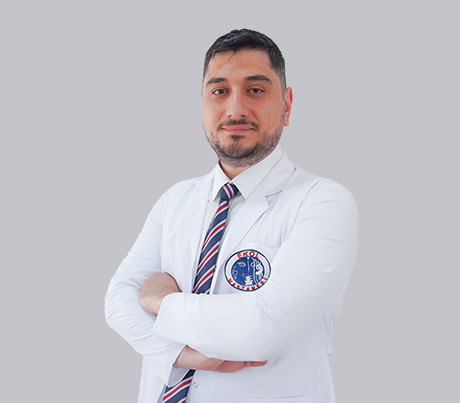It is a type of cancer that forms in the cells of the large intestine, called the colon or rectum. Colon cancer is the most common type of colon cancer and usually occurs in the last parts of the large intestine.
Although the causes of colon cancer are not fully known, some risk factors may include genetic predisposition, old age, insufficient fiber diet, smoking, obesity and sedentary lifestyle. Irregular defecation habits can also increase the development of colon cancer. Long-term accumulation of feces in the large intestine can cause toxins to accumulate and DNA damage to cells.
Regular colon cancer screenings are very important for early detection of the disease.
Various cancer types exist, and colon cancer - also known as colorectal cancer - is one of them. This type of cancer affects the area that named the colon or rectum.
It is one of the most known and common types of cancer that can be seen worldwide. However, the age range is generally over the age of 50 - but it doesn’t mean it can’t affect younger people either.
In this article, we will learn about colon cancer in general and some information such as treatment options for colon cancer, surgery, types of colon cancer, and more.
Like most cancer forms, the causes of colon cancer are not fully known. However, some factors may affect the cancer process can be listed as:
Types of colon cancer are decided through the characteristics of the cells, and they include:
Apart from the types of colon cancer, it is important to have an early diagnosis. Also, please note that regular check-ups can help with cancer prevention.
Treatment options for colon cancer depend on various factors such as stage and location along with the medical history and the situation of the patient. Generally, they can be listed as:
Since surgery is the most common treatment option for colon cancer, surgical procedures are required. For example, when the cancer is small and in its early stages, removing the small cancerous area is preferred through surgery.
If there are any polyps seen through the colonoscopy, they require polypectomy - which means the removal of the polyps. On the other side, colectomy is the most preferred surgical procedure for colon cancer and has 3-4 different types.
Lifestyle modifications can play a crucial role to reduce risks and colon cancer prevention. Of course, not all cancers including colon cancer can’t be prevented at any time, but changing your lifestyle can offer you different benefits.
 Date of birth 10.11.1987 Education and Expertise Karadeniz Technical University Faculty of Medicine Kocatepe University Ankara University Faculty of Medicine Konya Health Sciences University Professional Interests: Obesity (fatness) surgery and metabolic surgery Laparoscopic reflux surgery Laparoscopic gallbladder surgeries Gastric balloon application ERCP, EMR, ESD (Advanced Endoscopic procedures) Laparoscopic pancreatic cancer surgery Laparoscopic gastric and intestinal cancer surgeries Hemorrhoid surgeries Perianal fistula surgeries Laparoscopic abdominal and inguinal hernia surgeries Oncoplastic Breast cancer surgeries Natural cancer surgery (NOSE) Thyroid cancer and goiter surgeries. Memberships to Scientific Organizations Turkish Surgery Association Turkish Obesity Surgery Association Surgical Oncology Association National Society of Endoscopic Laparoscopic Surgery He is a member of the Bariatric and Metabolic Surgery Association. Courses and Certificates: Turkish surgical association proficiency exam (Board) certificate of achievement in 2018 He has more than 100 papers presented in national and international congresses and more than 50 articles published in international journals. Foreign language English
Date of birth 10.11.1987 Education and Expertise Karadeniz Technical University Faculty of Medicine Kocatepe University Ankara University Faculty of Medicine Konya Health Sciences University Professional Interests: Obesity (fatness) surgery and metabolic surgery Laparoscopic reflux surgery Laparoscopic gallbladder surgeries Gastric balloon application ERCP, EMR, ESD (Advanced Endoscopic procedures) Laparoscopic pancreatic cancer surgery Laparoscopic gastric and intestinal cancer surgeries Hemorrhoid surgeries Perianal fistula surgeries Laparoscopic abdominal and inguinal hernia surgeries Oncoplastic Breast cancer surgeries Natural cancer surgery (NOSE) Thyroid cancer and goiter surgeries. Memberships to Scientific Organizations Turkish Surgery Association Turkish Obesity Surgery Association Surgical Oncology Association National Society of Endoscopic Laparoscopic Surgery He is a member of the Bariatric and Metabolic Surgery Association. Courses and Certificates: Turkish surgical association proficiency exam (Board) certificate of achievement in 2018 He has more than 100 papers presented in national and international congresses and more than 50 articles published in international journals. Foreign language English